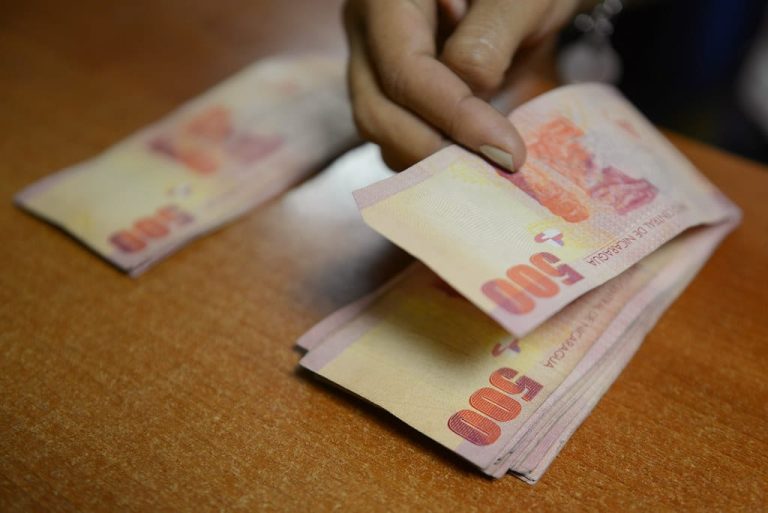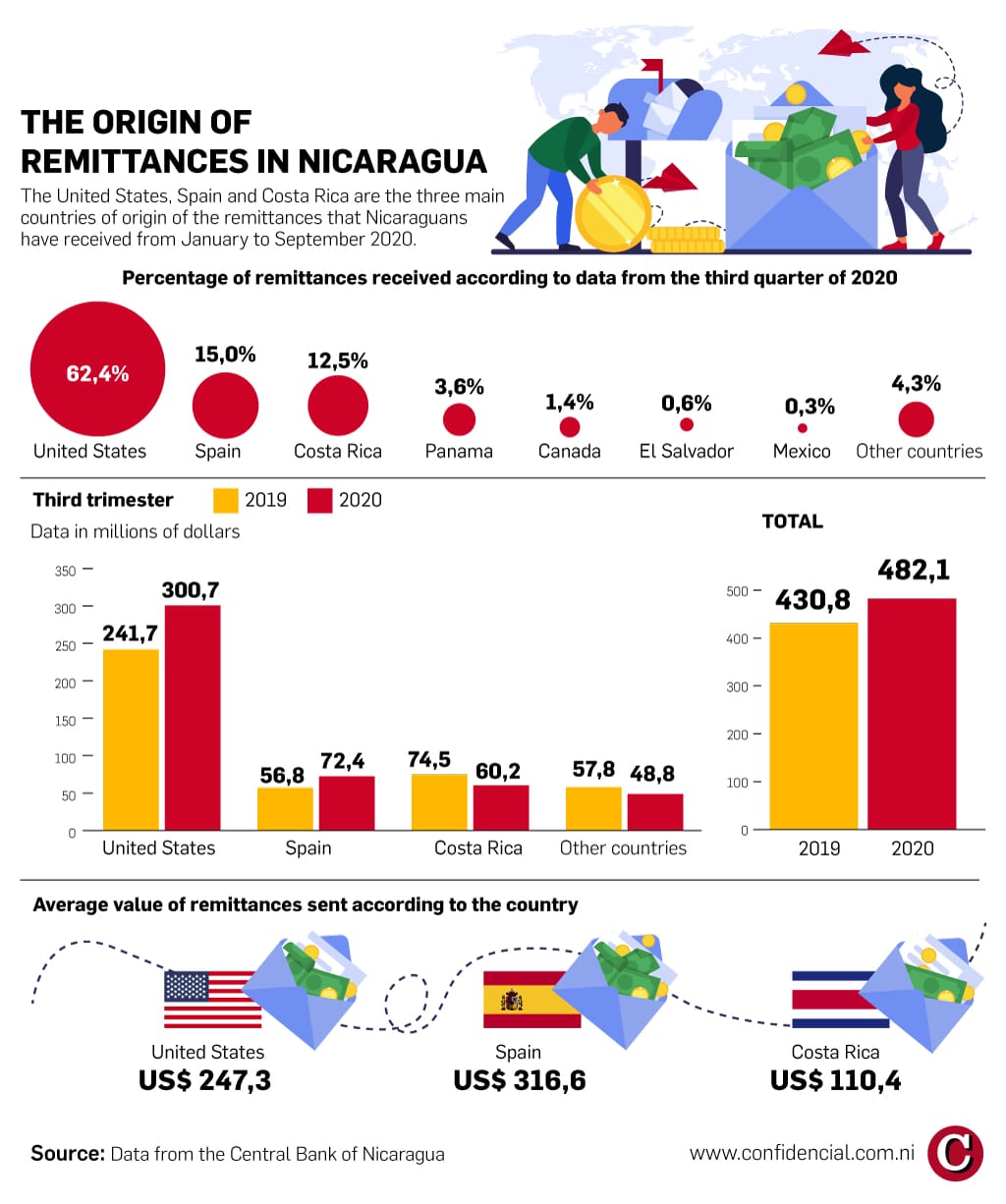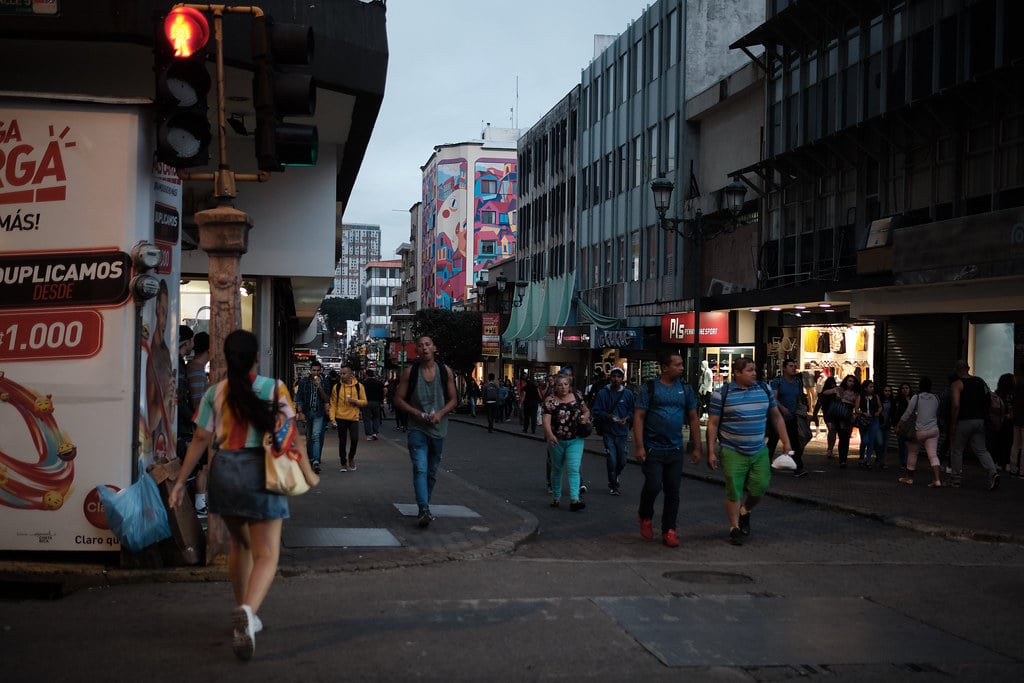20 de noviembre 2020

The Return of the Military

PUBLICIDAD 1M
PUBLICIDAD 4D
PUBLICIDAD 5D
Nicaraguan migrants become a “lifeline” in an economy in recession for the third consecutive year: 700,000 households in the country get them

“Everybody sends money to family members for their daily subsistence and to help them get ahead. That is the goal: to help your family and save”, says Indiana Chávez, a Nicaraguan who has lived in Córdoba, Spain, for two years.
Four out of every ten Nicaraguan households receive remittances from their relatives abroad. For decades, the historical labor migration has been a vital source of income for hundreds of thousands of people who receive money from their relatives in the United States, Costa Rica, Spain, and other countries each month, thus oxygenating the Nicaraguan economy.
According to the director of the Center for Migration and Economic Stability, Manuel Orozco, in 2000, the volume of remittances was close to 500 million dollars. For this year, 1.8 billion dollars are calculated in remittances, which represents around 15% of the country's Gross Domestic Product (GDP).
The Central Bank of Nicaragua recorded in its report for the third quarter of the year that of the total incoming remittances, 62.4% came from the United States, followed by flows from Spain (15.0%) Costa Rica (12.5%), and Panama ( 3.6%). Other smaller percentages come from Canada, El Salvador, or other countries.
“The importance of remittances goes beyond a macroeconomic indicator. It is in the function they exercise in the household income of many Nicaraguan families. We are talking about 700,000 households that receive remittances in a country that is made up of 1.8 million families,” says Orozco.
Remittances showed a normal behavior at the beginning of 2020, until April when there was a drop due to the health crisis caused by the covid-19 pandemic. But between May and August, there was a recovery in transfers, which led to a 9% growth between August and October, compared to the same period in 2019.
The growth of remittances to Nicaragua has to do with the increase in Nicaraguan migration after the socio-political crisis that began in April 2018. This increase is mainly recorded in Spain, after more than 25,000 Nicaraguans entered the country that year, according to the National Institute of Statistics of that country.
“Although the greater number of Nicaraguans who left seeking refuge were relocated to Costa Rica, the vast majority have had difficulty finding employment and sending money. When the recession hits, and with the impact of covid, the sending capacity decreases and as a result, not as much money is sent as in the case of Spain and other countries ”, explains Orozco.

Infographic: Juan Garcia | Confidencial
According to the Central Bank of Nicaragua, the flow of remittances from the United States had an interannual increase of 24.4% so far this year compared to 2019. Orozco indicates that this growth in the flow of remittances is due to the fact that, after the economic crisis that was experienced in that country in 2009, migrants had already developed a critical mass of savings that allowed them to sustain themselves after the loss of employment amid the pandemic.
Juana Moreno emigrated to the United States with her family to improve their living conditions six years ago. She lives in Chicago, Illinois. “My husband was given residency in 2014 and I came here with my children. Life there (in Nicaragua) is too hard and I can support my mother and my brothers economically from here”.
In March, Moreno was temporarily suspended from the hotel where she worked, but thanks to an unemployment savings fund that she has contributed to during these years, she has had that monthly subsidy which will cover her until the hotel restores her work or liquidates her.
“I receive almost 90% of my salary because I hadn't had any vacations in those six years, I have worked hard and that is why I can be fine in the middle of the pandemic… I send some of that money to my mother, she practically depends on me”.
“I began sending money to one sister one month, and to my other sister the next month because I know that things are tough there. I receive financial aid for my minor son from the federal government, and that is why I can send a little more, ”Moreno says.
Unemployment impacted various economic sectors, but other labor fields, such as construction, were not affected. Such was the case of Kenneth Porras, who arrived in the United States in early 2018 and is currently residing in Fort Walton, Florida.
The socio-political crisis forced him to stay longer than stipulated since his family became fully involved in the protests against the Government, which exposed them to police persecution and forced the migration of other relatives.
“I wanted to start a political asylum process, but because of the current Administration (of President Trump), I did not. All asylum cases that are not solidly supported were rejected without any objection… I did not want to expose myself ”, he says.
Since he started working, he has sent remittances to his family that stayed in Nicaragua. “I have two children, one is eleven and the other is four years old, to whom I deposit without missing a single month and, additionally, I send money for the cancellation of a debt. I recently changed my job and am sending more money, ”he details.
“In the workplace, I did not feel any difference with the pandemic. In construction you never stop having work… for example, here in Florida it never stopped ”.
Porras says that his grandmother in Nicaragua has had a shoe business for more than 40 years, but the owner of the place where she rented canceled her contract. He believes that it was due to the fear of the landlord, due to the political harassment suffered by his relative. "If I were not here my grandmother would not have been able to pay for all the expenses of the move and would have easily lost the business."
This situation coincides with the other reason that Orozco mentions regarding the increase in the amount of money that was registered this year.
"There is a solidarity factor surrounding what is happening in Nicaragua, some migrants begin to send money above the average amount."

The city of San José, Costa Rica, by night. Photo: Carlos Herrera | Confidencial
Blanca Espinoza is originally from La Conquista, a small municipality in the department of Carazo. She comments that for almost 20 years she and her husband, Gabriel Traña, have sent remittances.
In 2011, they both traveled to Costa Rica to provide a better quality of life for their family. Her eldest son, Kevin, stayed in Nicaragua. "I sent him $ 30 because it was only him and the girl who looked after him, and with that, they managed and there was plenty since life was cheaper than now," says Blanca.
In 2013, she returned to Nicaragua to look for work and to be more present in the care of her children, while her husband continued to send remittances from Costa Rica to cover expenses. "I was in Nicaragua for three years without a job, so he was the one who sent remittances and that’s how he was supporting us, but by 2018 it was not enough with what he sent ... so we decided to come," she says from San José.
Since Blanca returned to Costa Rica and found work, she began to send remittances to her mother, through her sister Martha Lorena Peña, who receives them in Managua and sends the money to La Conquista.
"I send my mother 50 dollars a month and with those 50 dollars she has been able to buy her medicines and food for a long time." As a result of the health crisis, Blanca's husband was unemployed and was unable to send remittances for two months.
There are households that receive even more than one remittance. "When covid was there, Blanca did not send money, but I have two sisters who have daughters in Spain ... they help economically because you know how the situation is," says Martha Lorena, in Managua.
According to Orozco, remittances from Costa Rica fell due to the unemployment faced by Nicaraguans as a result of the pandemic. “From Costa Rica to Nicaragua, around 350,000 transactions were originating. With the COVID crisis, they had a drop of 11.9% compared to last year ”.
Meanwhile, in Spain, the country's economy created certain labor structures in which newly arrived migrants were inserted. "That 20% growth observed in remittance transactions predominantly reflects the increase in Nicaraguans who entered Spain during the last two years," explains Orozco.
Indiana Chávez is one of the new remittance transmitters that is part of that figure. She left Nicaragua at the end of 2018 due to the country's socio-political crisis, in search of economic opportunities for her family, especially her daughters.
“I was the manager of a microfinance company and had a salary that gave me enough to survive. Due to the economic problems that occurred, the company decided to lower our salary by 50% and since I had a debt from a house that I had acquired, I could not sustain the economic situation, ”he explains.
“I send money to my mother, I help my daughters and I send money to pay for my house… I also had the cost of my daughter's studies, she was getting her degree and had to pay for her degree. All that expense was possible through me, I would not have been able to do it if I was there (in Nicaragua), and I also helped them with 80% of the basic expenses of the house, ” she details.
Despite the fact that Spain was one of the countries most confined by the pandemic, many migrants managed to keep their jobs, as was the case of Indiana, who works as a domestic servant and caring for an older adult.
Some regular migrants or in legal procedures in Spain were temporarily suspended by the companies, but they managed to be registered under the "Temporary Employment Regulation File", known as ERTE, which provides an economic support package to alleviate the coronavirus crisis, while they resumed their work.
In Spain, concern returns over confinement and the new wave of the coronavirus. “The economy is getting depressed. I don't know what measures the government will take. Here, most of the elderly live on their pensions, and if that fails, we too would be greatly affected ... If the government reaches a point where it declares bankruptcy and can no longer pay pensions, that would be a total catastrophe " , Indiana considers.
Despite the gradual opening of the economy in Costa Rica, the Nicaraguans living in that country do not expect that their situation will improve anytime soon. “Life here has always been hard, I think this country is the most expensive in all of Central America. Before the covid crisis, there were more opportunities, you can no longer say 'I'm going to go over there to hussle. I would say, ‘damn, if I don’t have a job, I’ll grab a bucket of enchiladas and go sell them, it'll cost nothing. But now you can't do that ”, Blanca reflects.
Indiana plans to regulate her immigration status and settle in Spain with her family, she has no hope that Nicaragua will improve. Kenneth Porras has the same plan, once he begins his legalization process in the United States under the new Government.
This change of government gives me a light of hope that the situation for migrants can improve. I want to bring my children here so that they can develop in this country… If I didn't send that money to Nicaragua, things would be very, very difficult for the family”, he considers.
Blanca's sister, Martha Lorena, is not very optimistic either. She comments that the economic situation is desperate. She is a seamstress and does not have a permanent job in Managua, which is why she assures that thanks to the remittances sent by her sisters, her family has managed to survive.
Orozco believes that the staggering growth of remittances will continue until registering a growth of 8% at the end of 2020, thanks to the economic injection made by Nicaraguan exiles and immigrants, many of them, without plans to return.
Nicaragua has been in an economic recession for three years and the projections of the Central Bank of Nicaragua are that at the end of the year, GDP will decrease -4.5%, while the Nicaraguan Foundation for Economic and Social Development (Funides) calculates a decrease of -5.0%.
"Given the current situation in my country, I actually have plans to bring my daughter and my granddaughter here, but not to return," says Indiana. The Nicaraguan adds that she does not see improvement in the country: "Every day it is harder, more unemployment, more crime, every day I see Nicaragua doing worse."
This article has been translated by Ana Maria Sampson, a Communication Science student at the University of Amsterdam and member of our staff*
PUBLICIDAD 3M
Periodista nicaragüense exiliada en Costa Rica. Se ha especializado en la cobertura de temas de migración, género y salud sexual y reproductiva. También ha trabajado en Marketing y Ventas y ha sido Ejecutiva de Cuentas.
PUBLICIDAD 3D